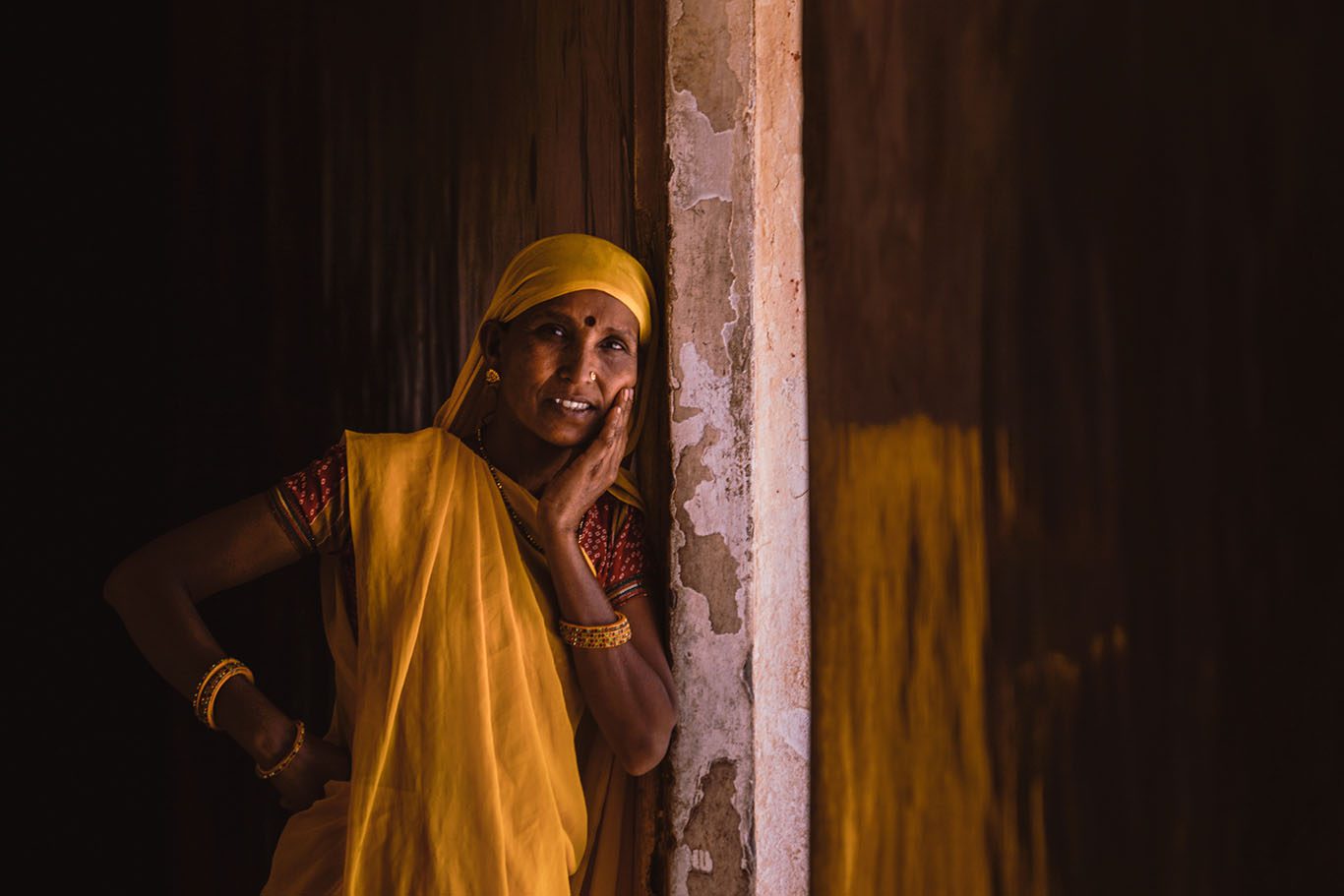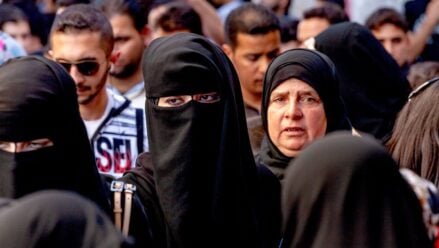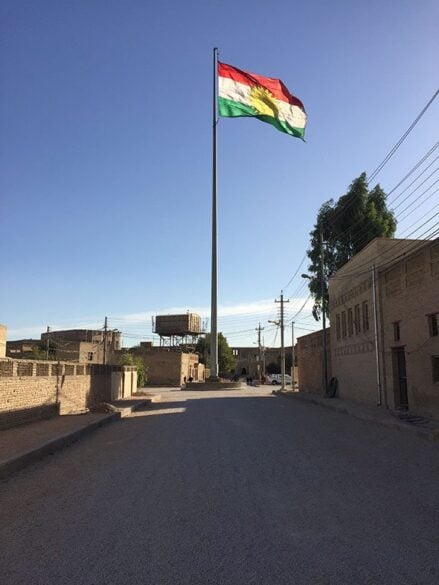But a recent report by the United States Commission on International Religious Freedom (USCIRF) claims the opposite is true: “In 2022, religious freedom conditions in India remained poor.” The report states that all levels of the Indian government continued to promote and enforce policies and laws that target Christians and other religious minorities.
The voices of those who criticize these policies have been suppressed through nefarious methods like surveillance, harassment, demolition of property, detentions, injuries, violence and even death.
It’s a devastating indictment for a diverse, secular and democratic country whose constitution is designed to protect religious freedom. Even more importantly, these governmental actions directly impact Christians who are living out their faith across the nation.
With nearly 1.4 billion people in 28 states that cover an expanse over one million square miles, India has places where Christians are the frequent targets of extremists.
Global Christian Relief is calling for urgent prayer for believers in these five specific hotbeds of persecution:
Uttar Pradesh (North India): Christians living in India’s most populous state regularly experience violent acts of persecution. UCA News reports that across the state, Christians say they are being victimized ever since the state’s pro-Hindu Bharatiya Janata Party (BJP) government criminalized religious conversions through allurement, force or coercion among other means, by enacting an anti-conversion law in February, 2021. In 2021, the state, now ruled by a Hindu seer and BJP luminary, Yogi Adityanath, recorded 105 incidents of persecution against Christians.
And now Christians there are facing another series of arrests—just for attending church. In April 2022, police arrested 26 believers attending a Maundy Thursday service, accusing them of converting Hindus by offering promises of jobs in missionary schools and hospitals. But the harassment didn’t end there—six months later police arrested a dozen more Christians in connection with the Maundy Thursday case. “Practicing our faith has become a serious problem,” a local Christian leader told Union of Catholic Asian News.
In Maharajganj, one of the state’s 75 districts, a Christian couple and their family have suffered assaults and repeated harassment stemming from a birthday party for the couple’s seven-year-old son. The child’s mother and five other women attending the celebration were arrested under false accusations of using the party as a cover to fraudulently convert people to Christianity.
The women spent more than a month in prison before being released on bail. “If there is nothing wrong with Hindus performing Hindu worship during their family birthday celebrations, what is wrong if we sing Christian choruses and pray before we eat?” the mother asked. Months later, the family continued to receive threats at their home.
Madhya Pradesh (Central India): Located just to the south of Uttar Pradesh, Madhya Pradesh is another hotbed of Christian persecution. Madhya Pradest is one of the forefront states in India to have implemented a controversial “anti-conversion” law. These laws were originally put in place in the 1930s to “preserve Hindu religious identity in the face of British missionaries.” These laws prohibit the conversion of one religion to another by use of force or allurement. Those in violation of these laws can face a fine, imprisonment or both, with radicals quick to enforce their own punishments. Although these are not federal laws, which are implemented across the entire country, individual states are slowly adopting and implementing them.
What’s more scary is, many times, accusers will use these laws as an excuse to persecute Christians. A recent instance involving false accusations of conversion from Hinduism to Christianity, police in Damoh district recently initiated a probe against 10 Christians following a surprise inspection at an orphanage.
Police allege a 17-year-old boy from a nearby tribal-dominated district was trafficked and then trained to become a pastor at the facility. The orphanage denies the accusation, saying the boy is staying there of his own free will and with the permission of his parents.
Just days before, police conducted a surprise inspection of a nearby Catholic-run girls’ hostel. The team, consisting solely of men, entered the girls’ dormitory, searched their belongings and then charged the hostel authorities with promoting Christianity after finding copies of the Bible.
Chhattisgarh (Central India): Chhattisgarh is another state in India which has locked onto and implemented their own anti-conversion law. States which have adopted these laws are more radical, meaning converting to Christianity comes with great risk and fear of imprisonment, fines and worse.
We recently heard from a local source who said, “It pains me to report the law and order situation has become very bad as Christians are being targeted and attacked. This afternoon, a crowd of 1,000 people came to attack the Narayanpur Catholic Church and have destroyed the church and presbytery. They are going to attack our other institutions.”
Still, in Chhattisgarh’s Sukma District, a group of 15 Christians were attacked when an extremist mob burst into a private home where people had gathered for an evening prayer meeting. The mob physically assaulted those gathered and demanded they forsake their religion. Victims allege that an off-duty police officer was among the attackers.
When the victims tried to file reports with the police—twice—they were verbally abused, insulted and thoroughly beaten by police officers.
In Koshalnar village, nine Christians were also attacked by a mob of radical Hindu nationalists. During a worship service, the mob surrounded the church, demanding the pastor and his brother come outside. When the two emerged, they were beaten with clubs and cursed.
Still not satisfied, the mob then erupted into the church and assaulted more believers worshipping inside. The violence led to several Christians sustaining serious injuries, with many needing emergency hospital care.
Haryana (North India): Just last year, Haryana passed the Prevention of Unlawful Conversion of Religion Act. In Haryana, those who convert from Hinduism to Christianity can face jail time of up to five years. The law also bans hiding one’s religion from their spouse; breaking this part of the law can carry with it a 10-year prison term.
But a Christian pastor working as a taxi driver in Ambala didn’t think he had anything to fear picking up a familiar passenger from a hotel. The previous evening, the pastor dropped off the same man at the hotel after picking him up from a Sikh place of worship. During that drive, the pastor had a pleasant conversation with the passenger and even had an opportunity to share the gospel with him.
On the second night, the trip would end in violence. On the way to the airport, the man asked the pastor to take a detour. Three men riding a scooter stopped the taxi, and the passenger asked the pastor to get out and unload his bags from the trunk. As the pastor did so, the three men began slashing him with box cutters and knives as the Sikh man looked on. Thankfully, the pastor made his way to the hospital.
Punjab (North India): In Punjab, Christians make up only 1.5% of the population. Radical Hindus are quick to condemn the minority Christians, claiming they are “superstitious,” and although they claim they are tolerant of other religions, they won’t stand for superstitions.
The room for Christians in Punjab is increasingly shrinking, and intimidation against Christians comes in the form of church vandalization.
In Punjab’s Tarn Taran district, four masked persons forcefully entered a church in the middle of the night and held the security guard captive at gunpoint. They then climbed to the top floor of the church and allegedly broke the statues of Mary and Jesus and took away their heads. The group then set a parked car on fire in the parking lot before leaving.
Although a case and special investigation into the incident has been opened with the police, there is no evidence arrests have yet been made.




